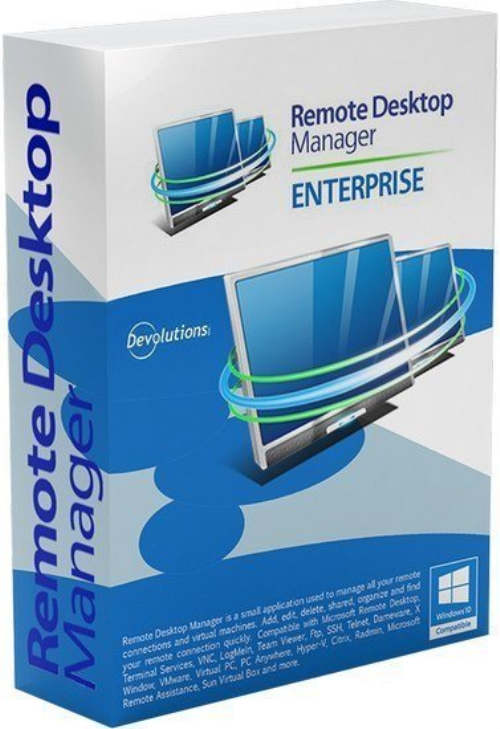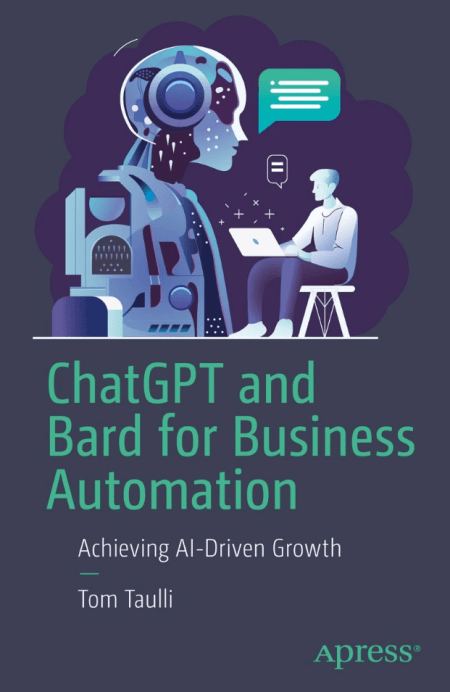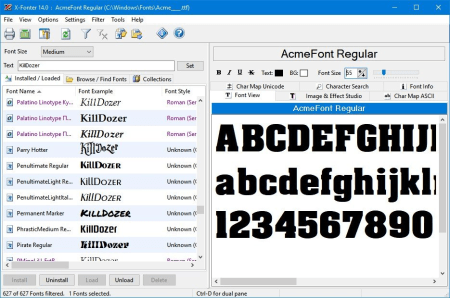

Published 12/2023
MP4 | Video: h264, 1920×1080 | Audio: AAC, 44.1 KHz
Language: English | Size: 2.52 GB | Duration: 8h 18m
Nail Your Next Cyber security SOC Interview: Most Common Questions and Answers for SOC Analyst Roles Simplified
What you’ll learn
SOC Analyst: Self-Introductions for Fresher, L1, and L2 SOC Levels
SOC General Interview Questions and Answers
Interview Questions and Answers on Computer Network and Network Security
Interview Questions and Answers Cyber Defense
Interview Questions and Answers Cyber attacks
Interview Questions and Answers on Windows
Interview Questions and Answers on Security Frameworks
Interview Questions and Answers on Log fields from various security devices for Log analysis
Interview Questions and Answers on Threat Intelligence
Interview Questions and Answers on Threat Hunting
Most widely asked Scenario Questions and Answers
Requirements
Basic Computer Knowledge
Description
Are you aspiring to excel in Cyber Security interviews, specifically in Security Operations Centers (SOC) This comprehensive Udemy course is tailored for you! Dive into the world of SOC with a focus on practical interview scenarios, real-world problem-solving, and mastering the skills needed to land your dream job in Cyber Security. Key Features:In-depth coverage of common interview questions encountered in SOC roles.Real-world examples and scenarios to enhance your problem-solving skills.Insights into the latest trends and best practices in Security Operations Centers.Expert guidance from experienced Cyber Security professionals. What You’ll Learn:Effectively tackle Cyber Security interview questions related to incident response, threat detection, network security, and more.Gain a deep understanding of SOC operations and responsibilities.Acquire problem-solving strategies to handle real-world scenarios.Enhance your confidence in facing technical and behavioral interview questions. Who Should Take This Course:Job seekers aiming for roles in Cyber Security and SOC positions.Cyber Security professionals looking to enhance their interview skills.Students and graduates preparing to enter the Cyber Security job market.Career changers transitioning into the Cyber Security field. Course Format:Engaging video lessons with practical demonstrations.Interactive quizzes to reinforce your understanding.Expert insights from seasoned professionals in the Cyber Security industry. Prepare for Success: Equip yourself with the knowledge and confidence needed to stand out in Cyber Security interviews. Join us on this learning journey, and let’s pave the way to your successful career in Security Operations Centers! Enroll Now and Elevate Your Cyber Security Career!
Overview
Section 1: SOC Analyst: Self-Introductions for Fresher, L1, and L2 SOC Levels
Lecture 1 Introduce Yourself as a Fresher
Lecture 2 Self-Introduction as an L1 SOC Analyst
Lecture 3 Self-Introduction as an L2 SOC Analyst
Section 2: SOC General Interview Questions and Answers
Lecture 4 What All Tools and Technologies you are using in SOC
Lecture 5 What type of SOC Model you are working (Inhouse/MSSP/Hybrid SOC)
Lecture 6 What is your Security team size and Hierarchy
Lecture 7 What all Different Log sources Integrated to your Clients SIEM
Lecture 8 How many Alerts You received per day
Lecture 9 Describe how you categorize and prioritize incidents in your SOC
Lecture 10 At the beginning of your shift as a SOC analyst, what tasks do you typically do
Lecture 11 In the Security Operations Center (SOC), which teams do you collaborate with
Section 3: Computer Network and Network Security
Lecture 12 Explain OSI layers
Lecture 13 Explain What is TCP 3-Way handshake and How it works
Lecture 14 Explain TCP header
Lecture 15 Explain IP header
Lecture 16 What is Difference Between TCP and UDP
Lecture 17 Explain Classes of IP address and Tell us Private IP address range
Lecture 18 Explain What is DHCP and How it works
Lecture 19 What is DNS Server and How it works
Lecture 20 What is Firewall What is Stateful Inspection in Firewall
Lecture 21 Difference Between Traditional Firewall VS Next generation Firewall
Lecture 22 What is Difference between Firewall Deny and Drop What is IDS/IPS
Lecture 23 What is Difference between Firewall and IPS
Lecture 24 What is Proxy server and Types
Lecture 25 Protocols and Port Number
Section 4: Cyber Defense
Lecture 26 What is CIA (Confidentiality, Integrity, and Availability)
Lecture 27 What is Encryption& Decryption Types of it
Lecture 28 What is Hashing
Lecture 29 Difference between Encoding, Encryption and Hashing
Lecture 30 Types of Hackers
Lecture 31 What is Malware and Types
Lecture 32 Difference Between Virus, Worm &Trojan
Lecture 33 What is Threat, Vulnerability and Risk What is Zeroday attc,Exploit and payload
Lecture 34 What is Event, Alert and Incident
Lecture 35 What is True Positive, False Positive, True Negative and False Negative
Lecture 36 What is IOC and IOA
Lecture 37 What is Data Leakage What is BOT and BOTNET
Section 5: Cyber attacks
Lecture 38 Please explain DOS and DDOS Attacks
Lecture 39 Explain Pass the hash attack
Lecture 40 Explain MAN-IN-THE-MIDDLE Attack
Lecture 41 What is Spoofing and types of Spoofing attacks
Lecture 42 What is Phishing and Types of Phishing attacks
Lecture 43 Explain Brute force attack how you Mitigate
Lecture 44 Explain Spray attack how you Mitigate
Lecture 45 What is Credential Stuffing Attack and Rainbow Table Attacks Mitigations
Lecture 46 Explain Dictionary attack and Mitigation
Lecture 47 Explain OWASP and list top 10 vulnerabilities
Lecture 48 Explain Security Misconfiguration and Mitigation
Lecture 49 Explain SQL Injection and Mitigations
Lecture 50 Explain Cross-Site Scripting (XSS) and Mitigation
Lecture 51 Explain Server-Side Request Forgery (SSRF) and Mitigation
Section 6: Windows Interview Q and A
Lecture 52 What is Active directory
Lecture 53 What is Kerberos and how Kerberos Authentication works
Lecture 54 Common fields in Windows event logs
Lecture 55 Can you please tell few Windows event IDs
Lecture 56 Explain the purpose of the Windows Security Event Logs why are they important
Lecture 57 Windows logon Types
Lecture 58 What is the difference between a user account and a service account in Windows
Lecture 59 Log in failures specific error codes
Lecture 60 What is the Windows Registry, and how is it crucial to system operations
Lecture 61 Explain the use of Windows PowerShell logging for security monitoring.
Section 7: Log fields from various security devices for Log analysis
Lecture 62 What Common log types SOC team collect Across infrastructure
Lecture 63 Can you explain Important fields in Firewalls for analysis
Lecture 64 Can you explain Important fields in IPS (intrusion Prevention system
Lecture 65 Can you explain Important fields in EDR
Lecture 66 Can you explain Important fields in Email gateway
Lecture 67 Can you List /explain Important fields in Proxy device
Lecture 68 What logs SOC team collect from AWS Cloud for analysis
Lecture 69 What logs SOC team collect from Azure Cloud for analysis
Lecture 70 What logs SOC team collect from Google Cloud for analysis
Lecture 71 What are logging levels in network devices
Section 8: Security Frameworks
Lecture 72 What is TTP
Lecture 73 What is MITRE ATT&CK framework
Lecture 74 Explain MITRE framework TTPs (Phases in MITRE)
Lecture 75 Explain MITRE framework TTPs (Phases in MITRE..Conti)
Lecture 76 Explain Incident response and phases
Section 9: Interview Questions and Answers on Mitre Att&CK
Lecture 77 Initial Access: How can attackers successfully gain Initial Access to a target
Lecture 78 Execution: Explain how attackers execute malicious code on a compromised system
Lecture 79 Persistence : Give an example of how attackers establish Persistence on a comput
Lecture 80 Privilege escalation How do attackers typically escalate privileges
Lecture 81 Defenses Evasion : Explain how attackers successfully evade security defenses
Lecture 82 Credential access: Provide an example of how attackers obtain credentials
Lecture 83 Discovery: How do attackers conduct Discovery to gather information
Section 10: Threat Intelligence Interview Q and A
Lecture 84 Can you tell me what you understand Threat Intelligence
Lecture 85 What is Threat Intelligence Feed
Lecture 86 Why Threat Intelligence is important today
Lecture 87 What are the Different Phases of Threat Intelligence
Lecture 88 What are the different types of Threat Intelligence
Lecture 89 Who Get Most Benefit from Threat Intelligence
Lecture 90 How can threat intelligence be integrated into a SIEM system for proactive threa
Lecture 91 Can you explain about Pyramid of Pain
Lecture 92 Describe a instance where you used threat intelligence to mitigate a Threat
Section 11: Threat Hunting
Lecture 93 What is Threat Hunting, and why is it important
Lecture 94 Can you explain the difference between Threat Detection and Threat Hunting
Lecture 95 What is hypotheses in Threat hunting
Lecture 96 Describe the process you follow when conducting a threat hunt
Lecture 97 One Example of a successful threat hunting engagement you’ve been involved in
Section 12: SIEM General interview Questions and Answers
Lecture 98 What is a SIEM and Why We need SIEM
Lecture 99 What is Normalization in SIEM
Lecture 100 While Reviewing Threat feeds what are the factors we need to verify
Lecture 101 What is Aggregation in SIEM
Lecture 102 What is Correlation in SIEM
Lecture 103 What is Parsing in SIEM
Lecture 104 Typical SIEM Components
Lecture 105 Explain SIEM Workflow
Lecture 106 Can you name some popular SIEM vendor
Section 13: SIEM Architecture and Components (Splunk, Logrhythm ,ELK,Qradar &Azure Sentinal
Lecture 107 Explain Splunk Architecture and Components
Lecture 108 Explain QRadararchitecture and Components
Lecture 109 Explain LogRhythmarchitecture and Components
Lecture 110 Explain Azure Sentinelarchitecture and Components
Lecture 111 Explain ELK (Elastic search)architecture and Components
Lecture 112 Explain Arcsightarchitecture and Components
Section 14: Most widely asked Scenario Question
Lecture 113 Scenario Question on Phishing-Investigation
Lecture 114 Scenario Question on Phishing-immediate steps to remediate Phishing attempt
Lecture 115 Phishing:Implications and Risks Associated with the Incident how do you educate
Lecture 116 What is role of email filtering in preventing Phishing incidents
Lecture 117 Scenario : Addressing Anomalous Network Traffic Spike During Off-Peak Hours
Lecture 118 Scenario : Malware Outbreak Analysis with Fictional Example
Lecture 119 Scenario: High number of failed login attempts with Fictional Example
Lecture 120 Scenario: Unusual System behavior’s: Investigation and Actions to Perform
Lecture 121 Scenario: Ransomeware Investigation and actions to Mitigate
Lecture 122 Scenario: Insider Threat investigation and how to address the situation
Lecture 123 Prioritizing and Remedying Critical Vulnerabilities: Fictional Scenario
Lecture 124 Scenario :Insider Threat: Exfiltrating sensitive data
Lecture 125 Scenario: Incorporate security automation into your daily SOC activities
IT professionals looking to start a Cybersecurity Career,ndividuals who are actively looking for job opportunities or career advancement in the field of Cyber Security, especially in roles related to Security Operations Centers.,Existing professionals in the Cyber Security field who want to enhance their interview skills, stay updated on industry trends, and prepare for advanced SOC positions.,hose studying Cyber Security or related fields who are preparing to enter the job market and want to excel in SOC-related interviews.,ndividuals transitioning from other IT or non-technical fields into Cyber Security and aiming for SOC roles.,Even if not actively job hunting, individuals interested in the field may take the course to understand the types of questions asked in Cyber Security interviews and to stay informed about industry practices.,The course is likely to cover a range of interview questions related to various aspects of Cyber Security, such as incident response, threat detection, network security, and more. It may also provide insights into common challenges faced in SOC roles and how to approach them.
rapidgator
https://rapidgator.net/file/980d8cea52b89c449700e7704be49f22/G7MYActD__CyberSecur_MegaDDL.net.part1.rar.html
https://rapidgator.net/file/91c38e4cd86ea263c10a813bee8880f8/G7MYActD__CyberSecur_MegaDDL.net.part2.rar.html
https://rapidgator.net/file/3bc18c5027a09366305088461c4f46f7/G7MYActD__CyberSecur_MegaDDL.net.part3.rar.html
nitroflare
https://nitroflare.com/view/AFD372DDAE7DD89/G7MYActD__CyberSecur_MegaDDL.net.part1.rar
https://nitroflare.com/view/C6BD70EE3FA7AE2/G7MYActD__CyberSecur_MegaDDL.net.part2.rar
https://nitroflare.com/view/836DED9BAF7B90B/G7MYActD__CyberSecur_MegaDDL.net.part3.rar
ddownload
https://ddownload.com/syqsmnj2vnrg/G7MYActD__CyberSecur_MegaDDL.net.part1.rar
https://ddownload.com/0aualfp6vmwz/G7MYActD__CyberSecur_MegaDDL.net.part2.rar
https://ddownload.com/wxsixihbx8im/G7MYActD__CyberSecur_MegaDDL.net.part3.rar
















Join the Conversation!
or
to post a comment